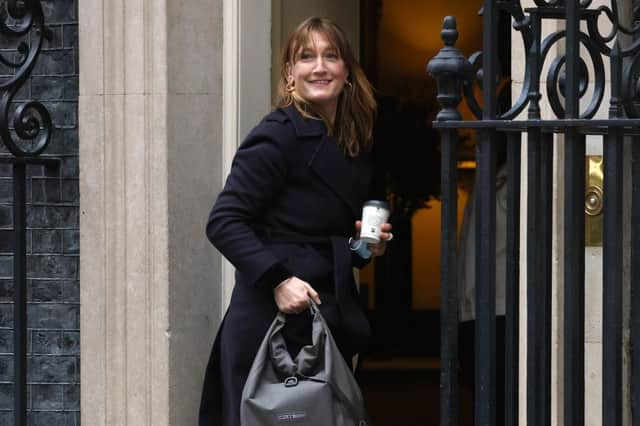Boris Johnson’s spokesperson refused to set the record straight after he made a false statement at PMQs - here’s what happened


The Prime Minister has been criticised after his spokesperson refused to apologise or issue a clarification when Mr Johnson falsely claimed that opposition MPs had voted against a pay rise for NHS staff last year.
Speaking at Prime Minister’s Questions (PMQs) yesterday, Mr Johnson incorrectly stated that the Labour Party had voted against a motion to give NHS staff a 2.1 per cent pay rise.
Advertisement
Hide AdAdvertisement
Hide AdDuring a press briefing after PMQs, the PM’s press secretary refused on 20 occasions to offer an apology or clarification from the Prime Minister, despite this being the convention when a mistake is made in the Commons.
What was the debate over?
The initial argument related to current government plans to offer NHS staff a one per cent pay rise, which Labour has described as being not enough.
While the Speaker of the House did agree to a clarification for the official record, it would be conventional for the person who made the mistake to issue a clarification of their own, or acknowledge their mistake.
When Labour leader Keir Starmer mistakenly claimed that he had never supported joining the European Medicines Agency in another PMQs spat last month, the Labour leader issued an apology and clarification later that day.
Advertisement
Hide AdAdvertisement
Hide AdWhat was said?
HuffPost has published a transcript, included below, of the conversation between the chairman of the Westminster journalists’ press lobby, Macer Hall, and the Prime Minister’s spokesperson, Allegra Stratton.
Macer Hall: This is specifically about comments he made about the way the Labour Party voted on one Bill. The Bill went through “on the nod”. They didn’t vote against it. Will the prime minister apologise and correct the record on this?
Allegra Stratton: The Speaker addressed it in the House immediately after the shadow health secretary raised it, and the Speaker said that it was a point of clarification, and regarded it as having been dealt with.
Macer Hall: Shouldn’t the prime minister clarify? It was not really up to the shadow health secretary to clarify the mistake. Shouldn’t he be clarifying it?
Advertisement
Hide AdAdvertisement
Hide AdAllegra Stratton: I think the Speaker addressed it, so it’s not about the shadow health secretary. The Speaker addressed it, he accepted it was a point of clarification, and he regarded it as having been addressed.
Macer Hall: So he does accept that he was wrong in this case, and he did say the wrong thing to the House?
Allegra Stratton: It was Speaker regarding a point of clarification as having been made. And that’s appropriate.
Macer Hall: This is the third occasion in several weeks that the prime minister has got points of fact wrong in the House of Commons. Does he have a problem with getting the facts right?
Advertisement
Hide AdAdvertisement
Hide AdAllegra Stratton: No, he doesn’t. The Speaker addressed this as a point of clarification. And it’s been dealt with today.
Macer Hall: Did you just forget how Labour voted on this occasion, or was he deliberately trying to make a political point and was incorrect?
Allegra Stratton: The Speaker regards a point of clarification as having been made. And it’s therefore being dealt with today.
Macer Hall: But don’t MPs have a responsibility to clarify their own mistakes? It’s not something that should be left to the speaker.
Advertisement
Hide AdAdvertisement
Hide AdAllegra Stratton: The key thing is that this was dealt with swiftly and the Speaker, who has enormous respect and authority in parliament, regards it as a point of clarification, and it’s now been dealt with.